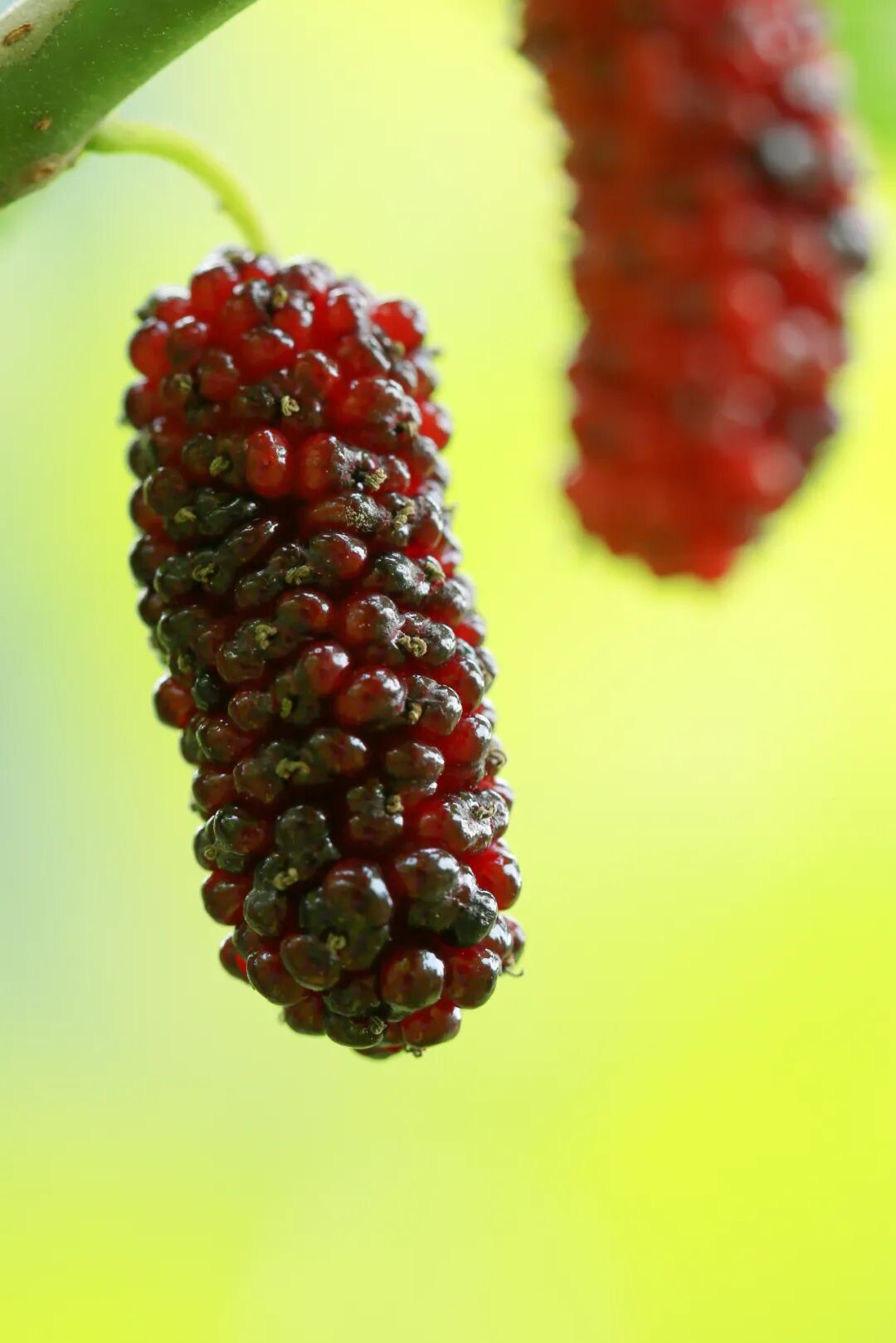
It’s time to eat mulberries again, those shiny purple-black little fruits that are sweet and sour, plump and juicy. There are many ways to enjoy mulberries, you can wash them and eat them raw, make juice, mix them with yogurt, or even brew them in alcohol… they are particularly versatile.
Nutritional Benefits of Mulberries
-
Dietary Fiber
The dietary fiber content in mulberries is excellent among fruits, with insoluble dietary fiber reaching 4.1 grams per 100 grams, while blueberries, also a berry, have a total dietary fiber content of 2.4 grams per 100 grams.
Eating some mulberries can provide a good sense of fullness and promote gastrointestinal motility, benefiting intestinal health. Importantly, mulberries are not high in calories, containing only 57 kcal per 100 grams, comparable to blueberries and apples, making them friendly for those needing to control their weight.

Photo by Xinhua News Agency (Zhou Xiuyu)
-
Vitamin C
The vitamin C content in mulberries is 36.4 mg per 100 grams, similar to oranges, and significantly higher than blueberries, being nearly four times that of blueberries. Therefore, using mulberries as a daily source of vitamin C is a good choice.
-
Selenium
According to the “Chinese Food Composition Table”, mulberries are rich in selenium, containing 5.65 micrograms per 100 grams, which is higher than common fruits like apples, peaches, pineapples, pears, and grapes, and is 56.5 times that of blueberries.
Selenium is an essential trace element for the human body, involved in regulating thyroid function, metabolism, and blood circulation, and it also helps maintain normal immune function.
-
Anthocyanins
The anthocyanin content in mulberries generally ranges from 14 to 347 mg per 100 grams, with darker fruits containing higher levels.Dark purple mulberries have the richest anthocyanin content, far exceeding that of blueberries, black rice, purple corn, and grapes.
Anthocyanins are polyphenolic compounds with antioxidant, anti-cancer, and anti-allergic properties.Consuming foods rich in anthocyanins helps protect cardiovascular health and prevent cognitive decline.Anthocyanins also help protect vision, allowing the eyes to adapt quickly to dark environments and improving myopia, alleviating vision blurriness caused by eye fatigue.
-
Resveratrol
Resveratrol is a natural polyphenolic compound found in mulberries, with a content of 6.854 mg per 100 grams.
Resveratrol helps us with antioxidant effects and has a good ability to scavenge free radicals.It is also very beneficial for cardiovascular health, helping to inhibit platelet aggregation, regulate lipid metabolism, and prevent thrombosis.

Photo by Xinhua News Agency (Wang Gang)

Produced by the Xiajin County Media Center
Reporter | Wang Qian
Reviewed by | Wang Rongyue
Final Review | Shang Hong